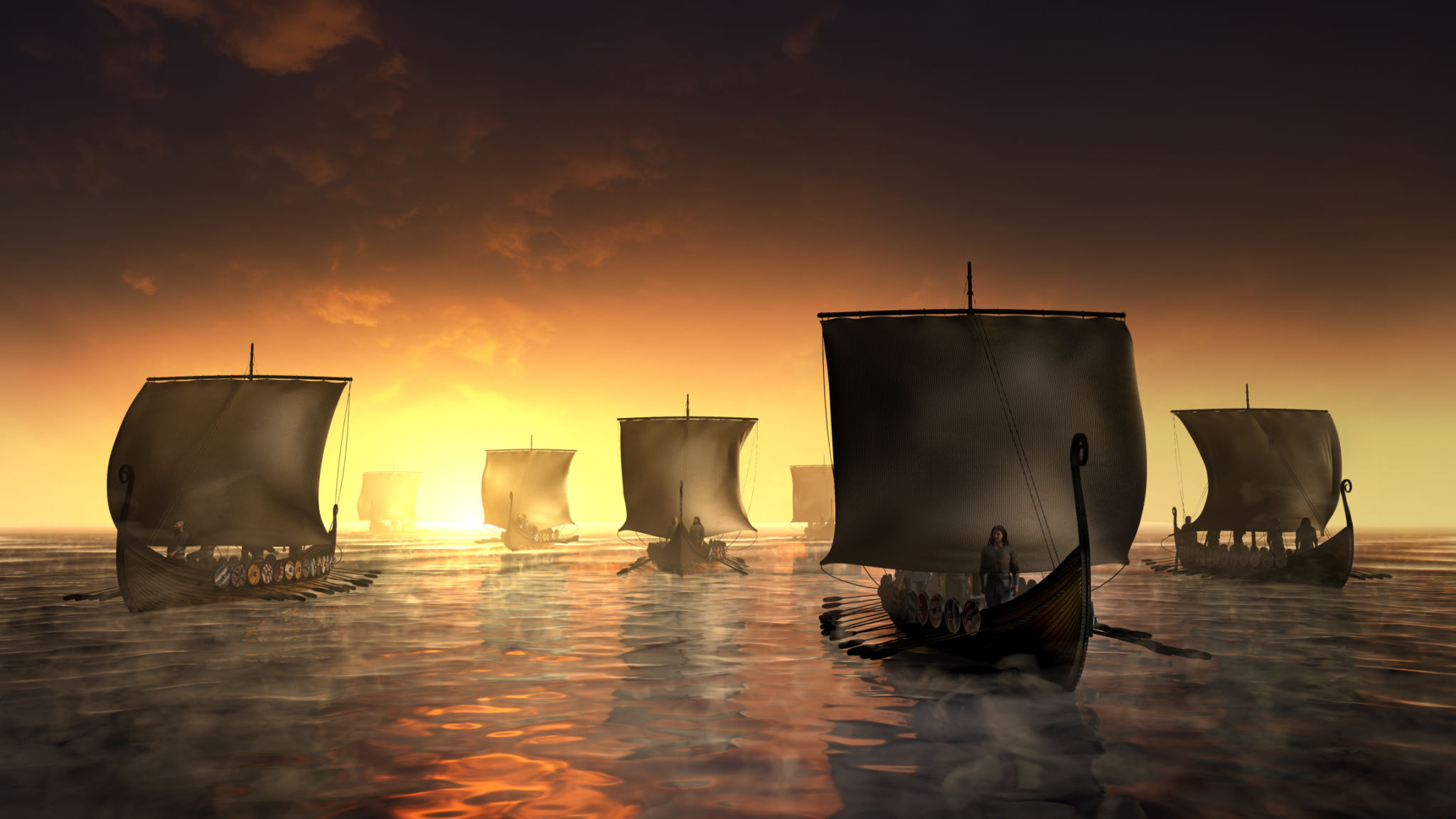Flóki Vilgerðarson: The Man, the Myth, and the TV Legend
In the grand tapestry of Nordic history and legend, few names capture the imagination quite like Flóki Vilgerðarson. A daring seafarer, an innovator, and an explorer, Flóki holds a unique place in the Norse saga tradition. But how does the historical figure compare to the enigmatic, eccentric character "Floki" from the History Channel’s "Vikings" series? Let’s dive into the sources, separate fact from fiction, and explore how Flóki has been reimagined for modern audiences.
The Historical Flóki Vilgerðarson

Flóki Vilgerðarson, also known as Hrafna-Flóki (Raven-Flóki), is a semi-legendary figure from the Icelandic sagas, particularly the Landnámabók (The Book of Settlements) and Íslendingabók (The Book of Icelanders). According to these sources, Flóki was the first Norseman to deliberately sail to and attempt to settle Iceland in the 9th century.
What sets Flóki apart in these accounts is his use of ravens to navigate—earning him the nickname Hrafna-Flóki. As the story goes, Flóki released three ravens during his voyage. The first returned to the ship, the second circled and returned, but the third flew off and did not return, leading Flóki to believe land lay in that direction. Following the raven's path, Flóki discovered a land of rugged beauty and harsh conditions.
However, Flóki’s expedition to Iceland was not an immediate success. The Landnámabók records that he and his crew endured a brutal winter, ill-prepared for the challenges of survival. When the snows melted, Flóki saw drift ice filling the fjords and named the land Ísland—Iceland. Disillusioned by the hardships, Flóki initially returned to Norway and gave a negative report, but others who followed in his wake found the land to be fertile and promising. Flóki would later return to Iceland, becoming one of its early settlers.
Flóki’s story, while recorded in medieval sources, is not without questions. As with many saga figures, the historical accuracy of these accounts is debated. Yet his legacy as a pioneering explorer remains foundational in the Icelandic narrative of discovery.
Floki in the Vikings Series: Trickster, Seer, and Shipwright

In the Vikings TV series, Floki is reimagined as a complex, almost mythic figure. Played by Swedish actor Gustaf Skarsgård, Floki is a shipbuilder, a spiritual visionary, and an eccentric trickster—a far cry from the pragmatic explorer of the sagas.
This fictional Floki is a master craftsman, building the innovative longships that allow Ragnar Lothbrok and his crew to raid and explore distant lands. He is also portrayed as a deeply religious man, devoted to the gods and often at odds with the Christianizing influences among the Vikings. Floki is whimsical, erratic, and often unsettling—a man who seems to dance on the edge of sanity, perhaps even touched by the divine.
The showrunners of Vikings crafted Floki as a symbolic figure, embodying the spirit of the old gods, the fading pagan world, and the deep connection between Norse seafarers and their deities. His spiritual visions, dramatic mood swings, and unpredictable behavior create a character that feels almost shamanic—more of a völva or seiðr practitioner than a historical shipwright.
Interestingly, while the real Flóki Vilgerðarson is best known for discovering Iceland, the show’s Floki follows a similar trajectory. In the later seasons, Floki leads an expedition to what is implied to be Iceland, depicted as a promised land for the old gods—a poetic echo of the historical Flóki’s journey.
Flóki’s Enduring Legacy
The character of Flóki—both historical and fictional—embodies the spirit of adventure, risk, and the search for new horizons that defines the Viking Age. In the sagas, Flóki’s story is one of hardship, resilience, and the challenges of forging a new life in an unknown land. In Vikings, Floki becomes a symbol of the old ways, a man torn between faith, madness, and the changing tides of history.
Whether as a historical figure who helped chart the course of Norse expansion, or as a mythic, tragic character in modern media, Flóki continues to fascinate and inspire. His story is a reminder of the thin line between fact and legend, and how each generation reshapes the past in its own image.
